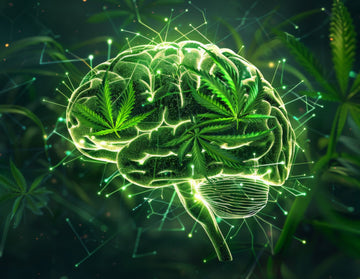Cannabis, commonly known as marijuana, contains compounds like tetrahydrocannabinol (THC) and cannabidiol (CBD), which interact with the body's endocannabinoid system, influencing various physiological and psychological functions. The frequency of cannabis use—whether occasional or daily—plays a significant role in its effects on health and well-being.
Occasional Cannabis Use
-
Immediate Effects
Mood and Perception: Occasional use of cannabis typically results in temporary euphoria and relaxation. Users may experience altered perceptions of time and space, often described as a sense of heightened sensory experience.
Cognitive Effects: Short-term memory impairment is common during intoxication, along with altered judgment and impaired coordination, affecting tasks requiring attention and focus.
Physical Effects: Physiological effects include increased heart rate, dry mouth, and bloodshot eyes, which typically subside as the intoxication wears off.
-
Long-term Impact
Dependency Risk: Occasional users have a lower risk of developing cannabis dependence compared to daily users, although psychological dependence can still occur in susceptible individuals.
Brain Function: Research suggests reversible cognitive effects, particularly in memory and attention, which typically improve with abstinence.
Psychological Health: While occasional use may not lead to severe mental health issues, individuals with pre-existing anxiety disorders may experience temporary exacerbation of symptoms during intoxication.
-
Medical Use
Pain Management: Occasional cannabis use can provide relief from chronic pain without the development of significant tolerance, making it a viable option for intermittent pain management.
Nausea and Appetite Stimulation: It is effective in reducing nausea and stimulating appetite in patients undergoing chemotherapy, improving their quality of life without necessitating daily use.
Daily Cannabis Use
-
Immediate Effects
Tolerance Development: Daily cannabis use leads to tolerance development, requiring higher doses to achieve the same effects over time.
Functional Impairment: Persistent cognitive effects, including impaired memory and decision-making skills, can impact daily functioning and productivity.
Psychological Dependence: Daily users are more likely to develop psychological dependence, relying on cannabis for mood regulation and experiencing withdrawal symptoms upon cessation.
-
Long-term Impact
Brain Structure: Structural changes in brain regions regulating memory, emotion, and decision-making have been observed in long-term daily users, potentially affecting cognitive abilities and emotional stability.
Respiratory Health: Chronic cannabis smoking may lead to respiratory issues such as chronic bronchitis and irritation of the respiratory tract, similar to tobacco smoking.
Social and Behavioral Changes: Daily cannabis use can influence relationships, employment stability, and overall life satisfaction, particularly if use interferes with daily responsibilities and social interactions.
-
Medical Use
Chronic Pain Management: While effective initially, daily cannabis use may result in diminishing returns over time due to tolerance development, necessitating higher doses to achieve pain relief.
Neurological Disorders: It shows promise in managing seizures and muscle spasms associated with neurological disorders, but long-term effects on disease progression and symptom management require further research.
Conclusion
Understanding the impact of cannabis based on frequency of use is crucial for making informed decisions about its recreational or medical use. Occasional use may offer therapeutic benefits with minimal long-term effects, making it suitable for certain medical conditions. In contrast, daily use presents risks of dependence, cognitive impairment, and potential health complications, underscoring the importance of responsible use and awareness of individual health status and tolerance levels.









